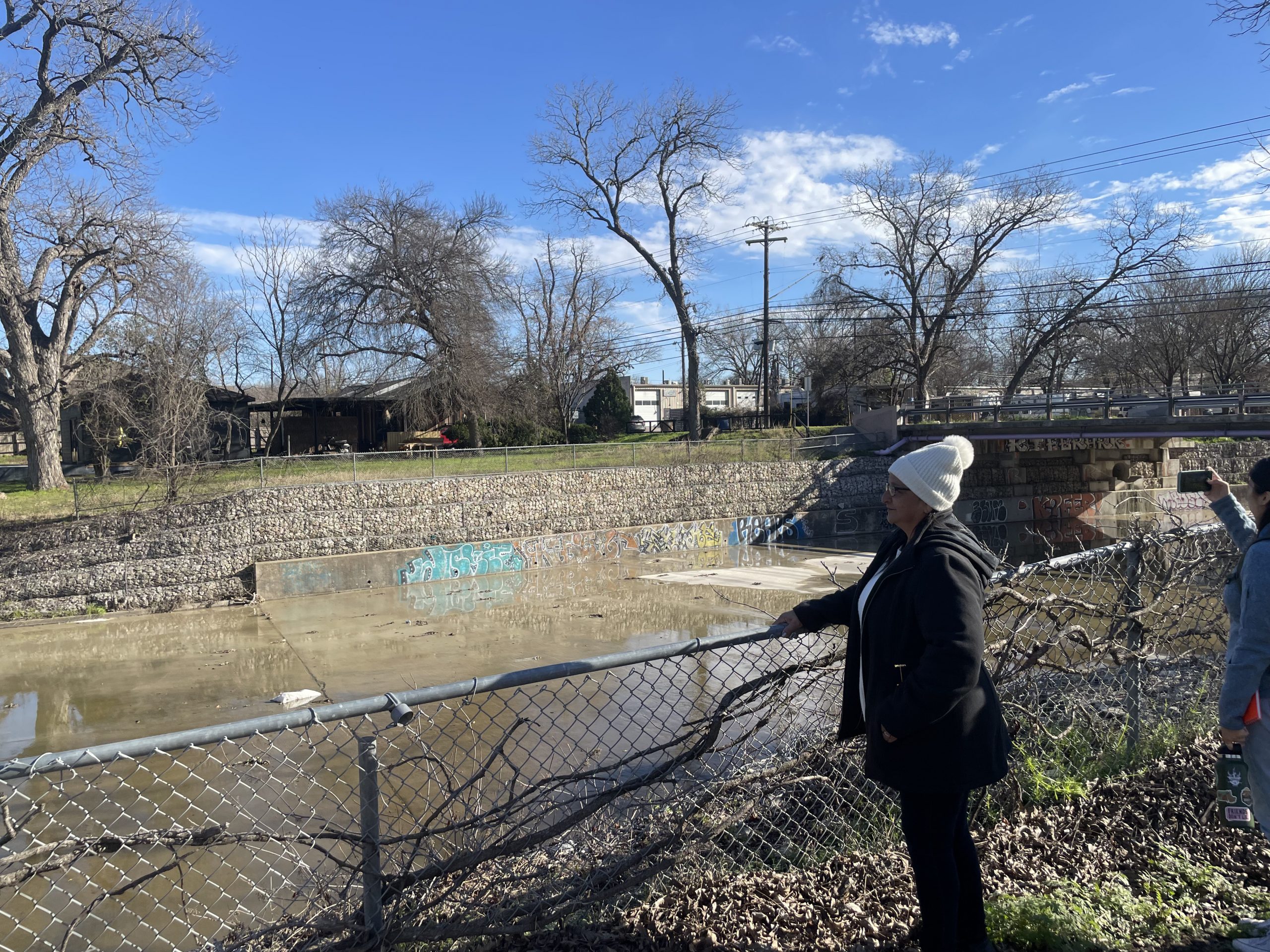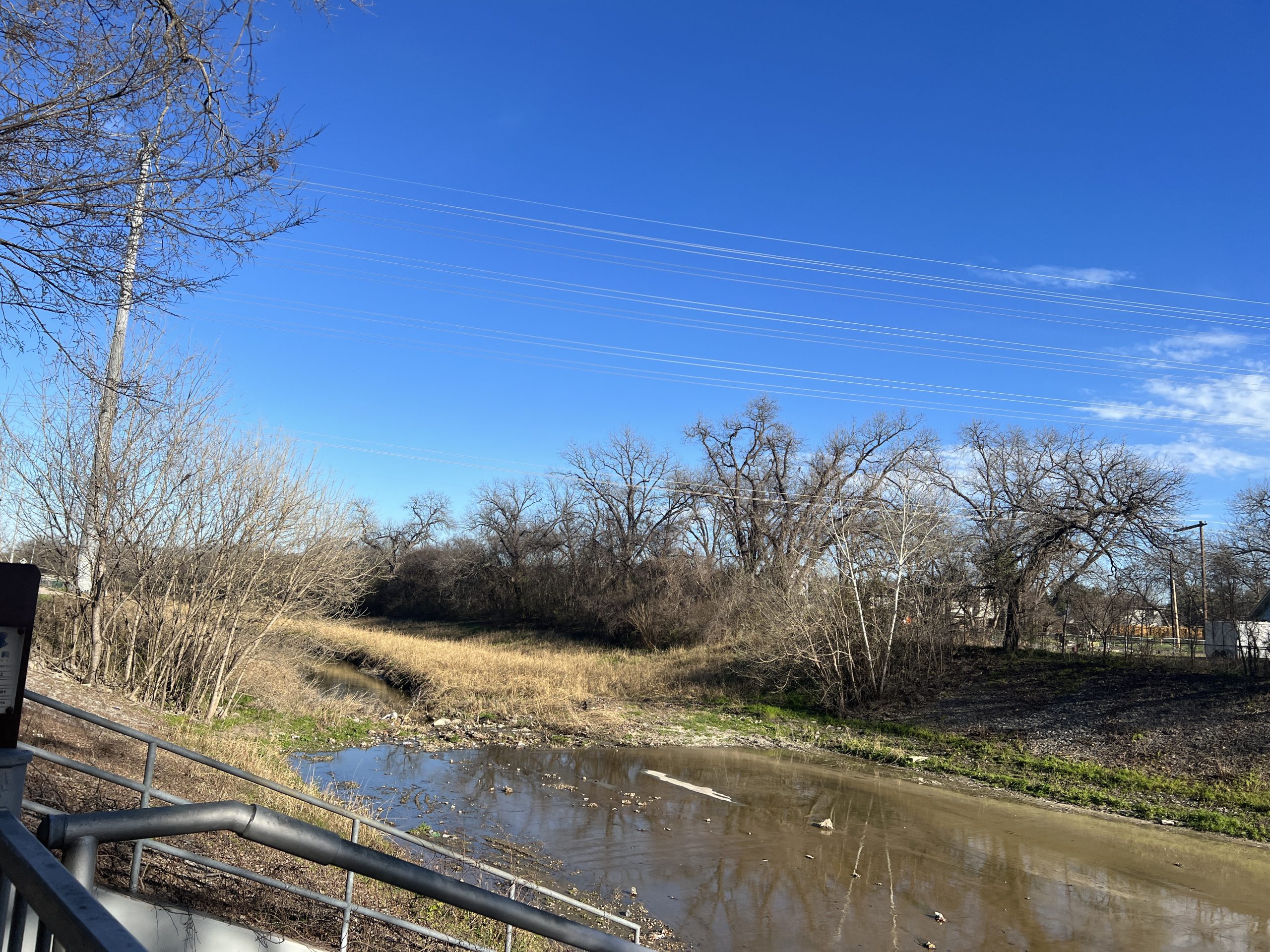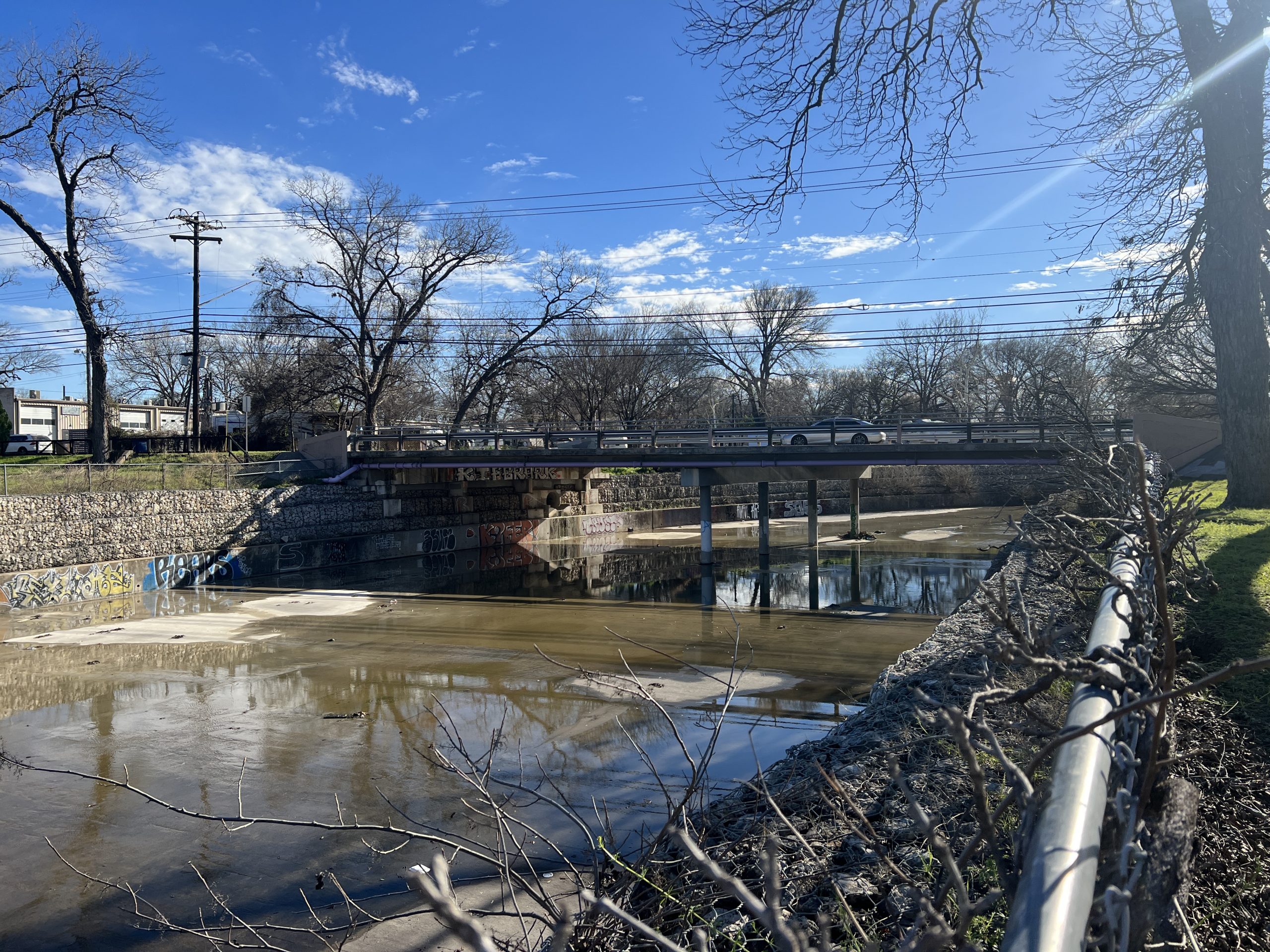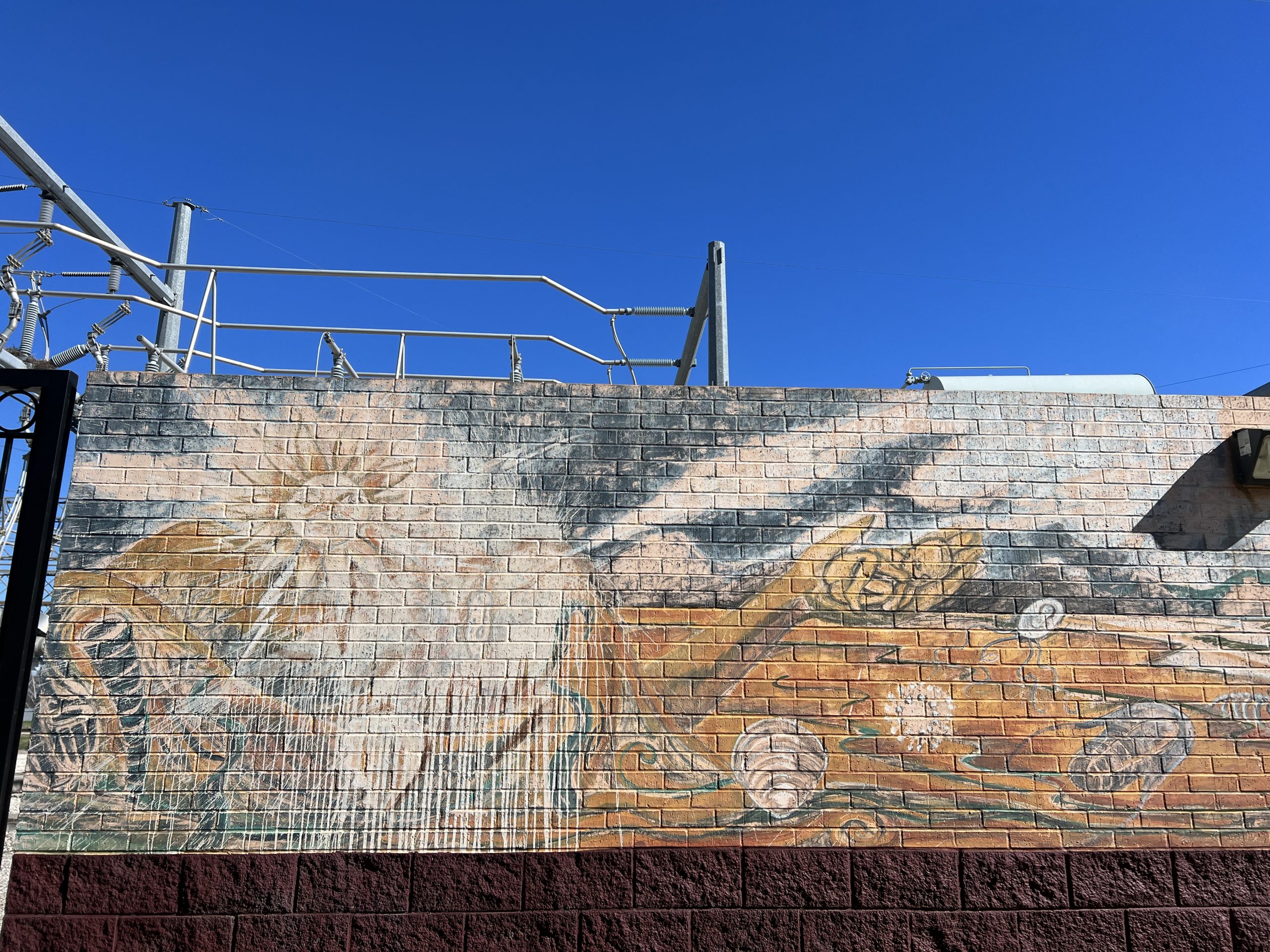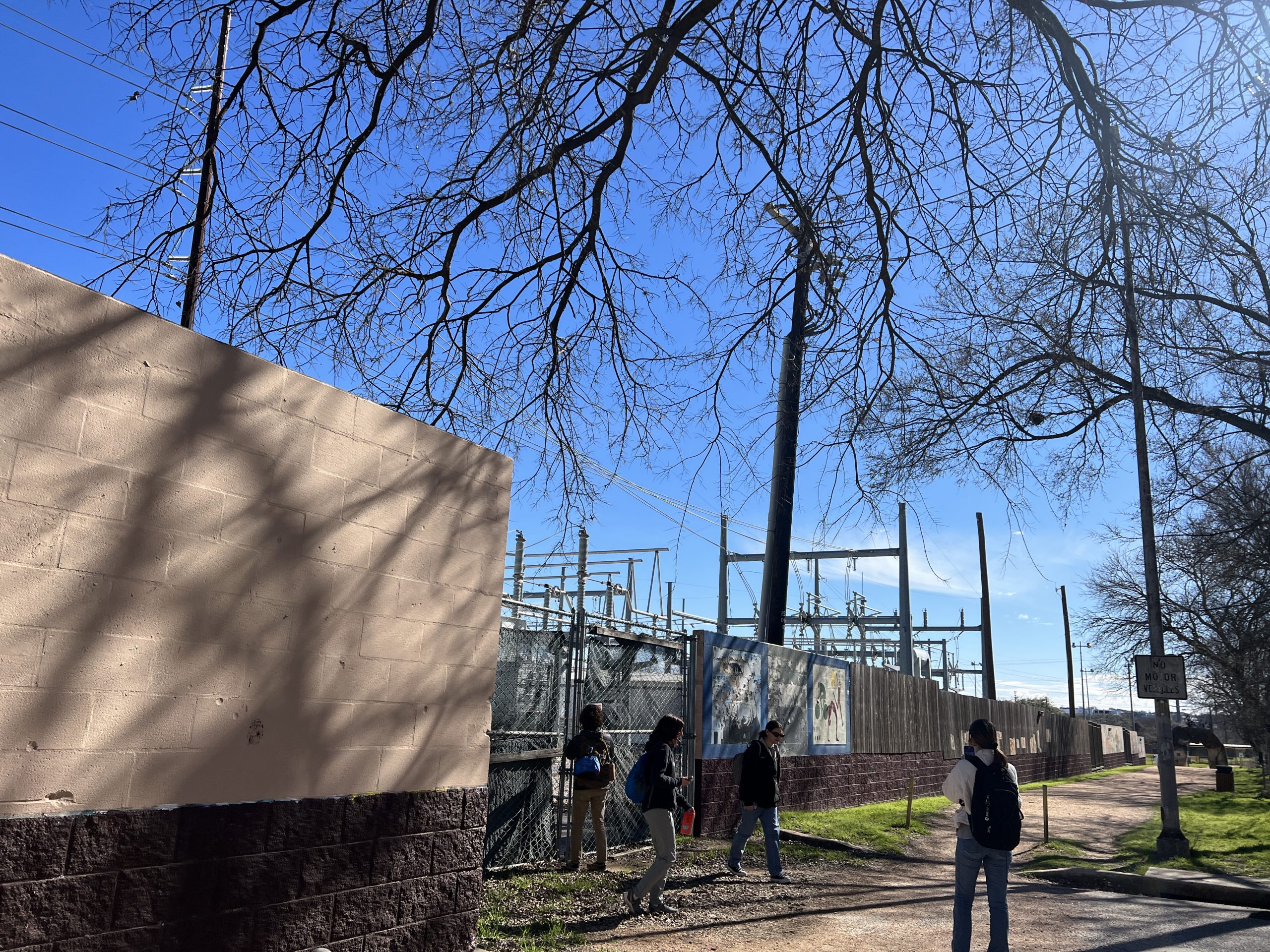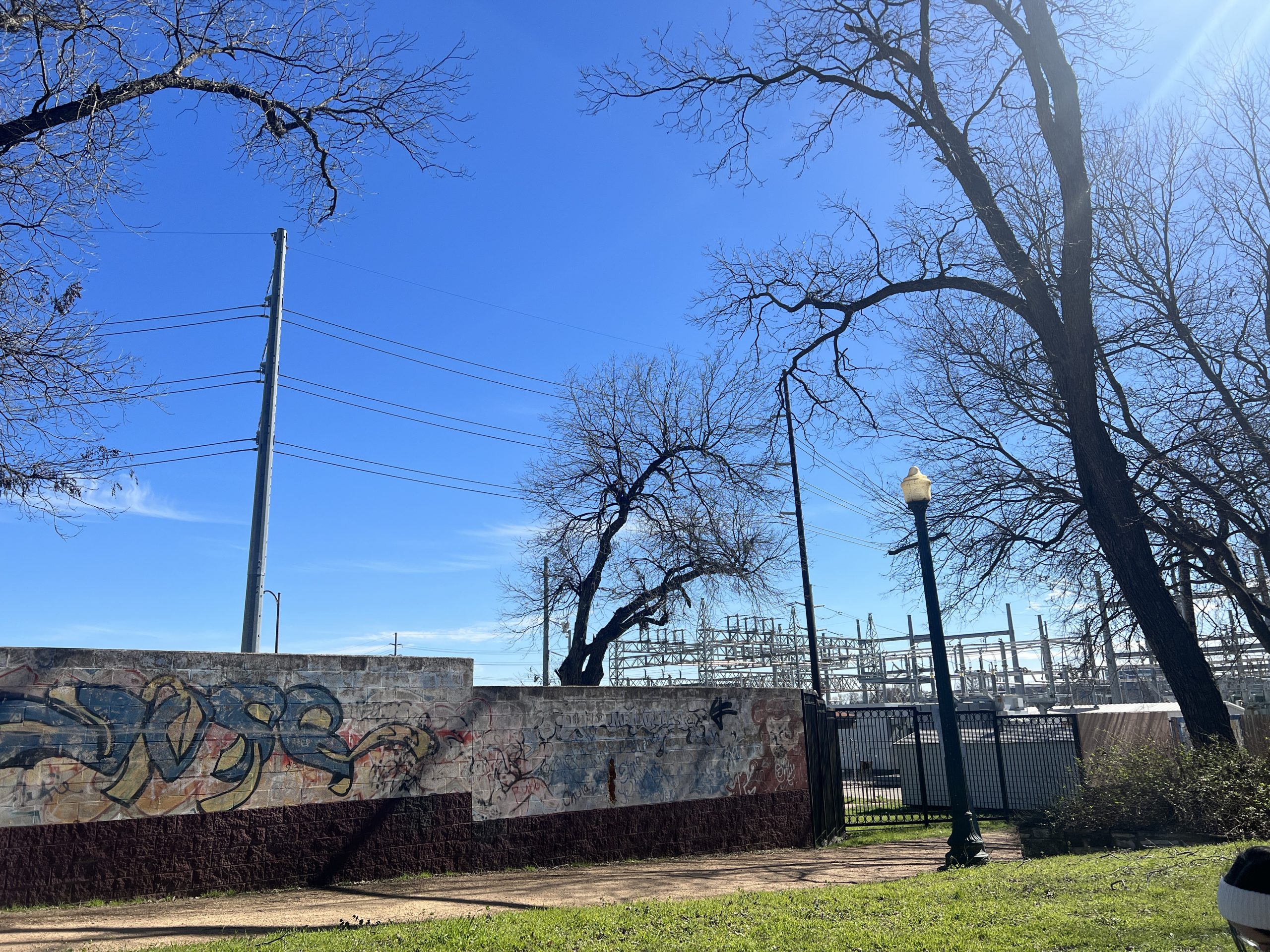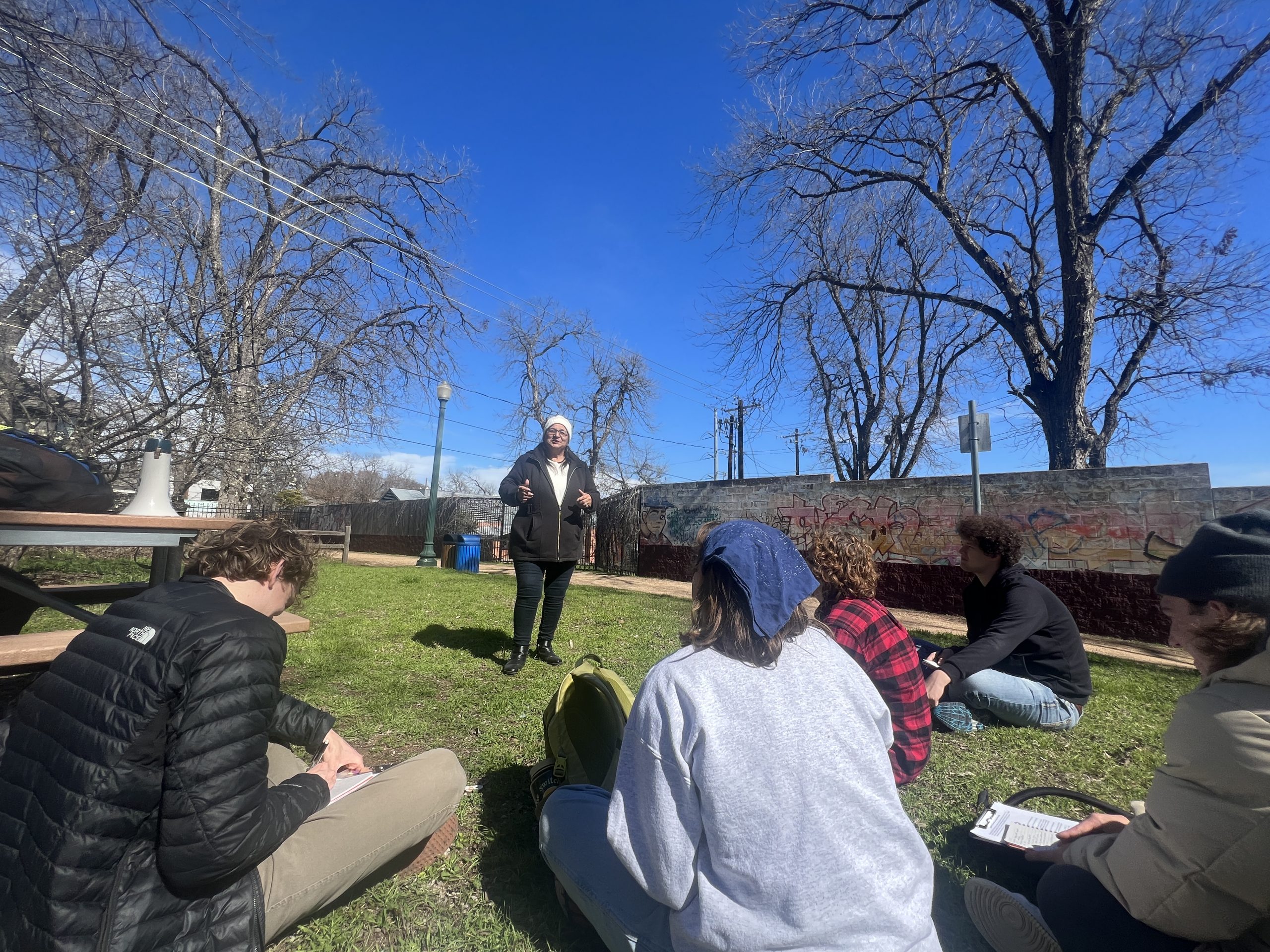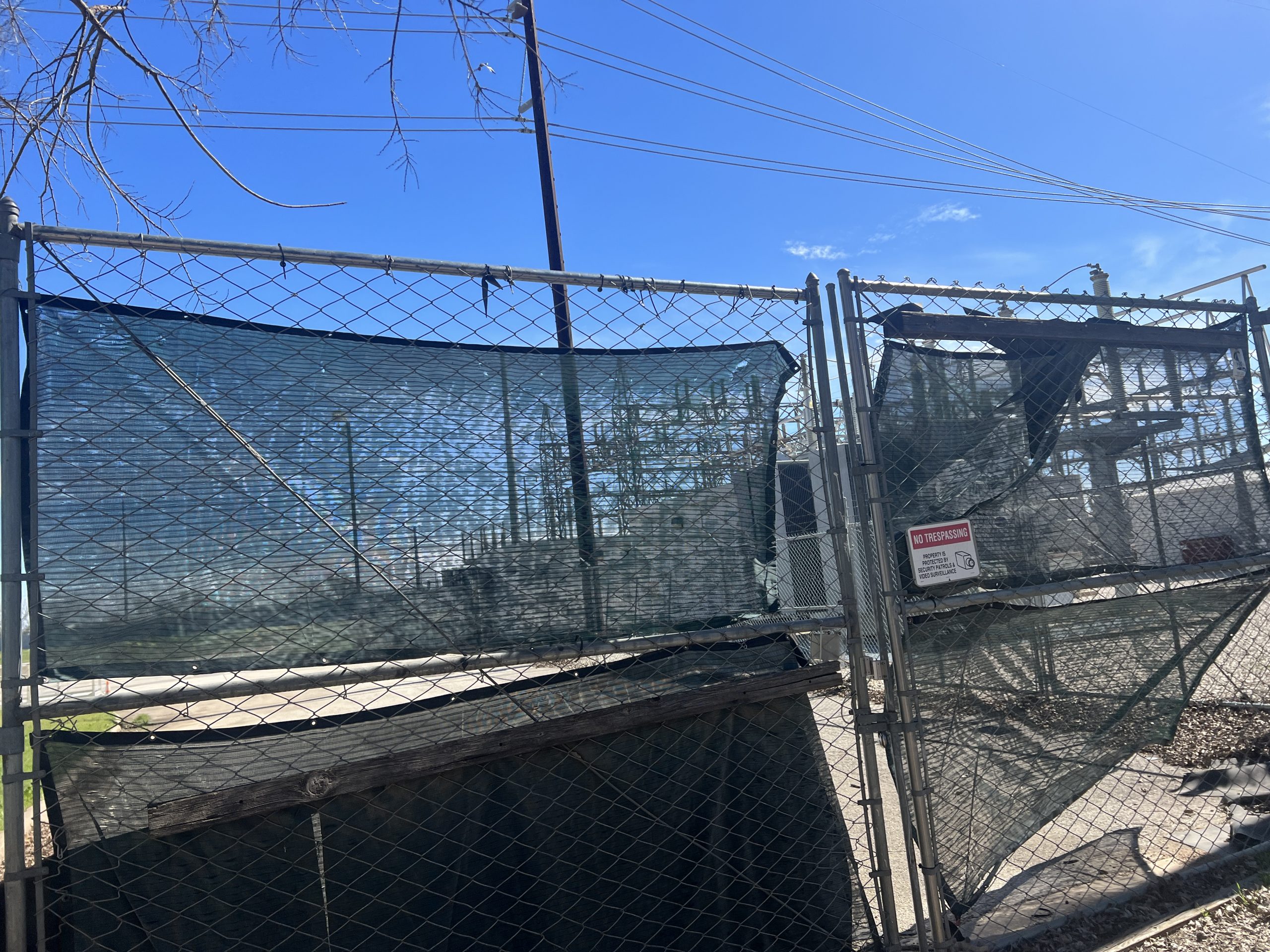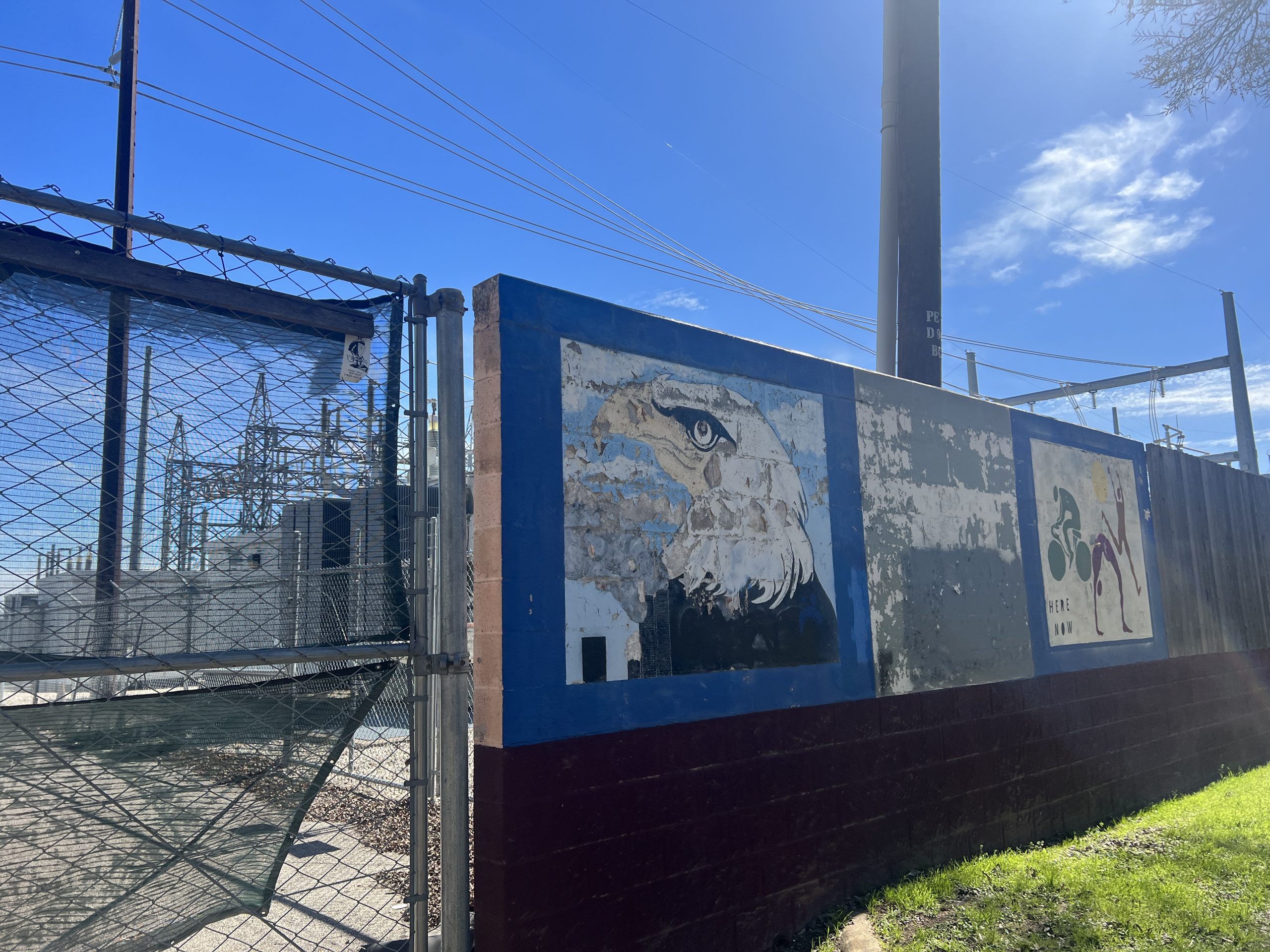Holly Street Power Plant and Boggy Creek
GEO371T students traveled to the Holly Street Power Plant located in East Austin, the historic site of a 17-story-tall hazardous power plant. The power plant was extremely harmful to locals, with sound levels and electromagnetic field levels greatly exceeding the limit set by the EPA. This resulted in community-wide hearing loss and health concerns, in addition to safety concerns raised by elevated nitrogen oxide levels causing sudden and dangerous fires in the area.
Susana Almanza, leader of PODER, People Organized in Defense of Earth and Her Resources, and member of the White House Environmental Justice Advisory Council, made a guest appearance to discuss her work on the Holly Power Plant issue. Almanza and members of PODER worked towards demolition of the plant, and after a lengthy battle with city officials, succeeded in its goal on September 30th, 2007. Students learned about the situation with the Holly Power Plant from an environmental justice lens—residents were overwhelming low-income and Latino. The power plant caused abnormally elevated levels of breast cancer among Hispanic female residents, despite Hispanic females reporting the lowest rates of breast cancer. Additionally, the power plant did not service the community it was inconveniencing, with its generated power servicing Downtown Austin instead. This issue helped the class understand why and how these situations of environmental injustice occur, and how steps taken by organizations such as PODER can help put a stop to injustice.
Next, students traveled to the Boggy Creek watershed to observe the effects of man-made channel morphology on the surrounding community. Susana Almanza, leader of PODER and member of the White House Environmental Justice Advisory Council, described her childhood growing up in the area prior to its cementation. She describes a positive experience growing up near nature, and she lamented that younger generations will not have the pleasure of experiencing natural creeks as she did when she was young. Rocio Villalobos, the Equity and Inclusion Program Manager for the City of Austin, describes growing up not knowing the creek any other way, highlighting the normalization of the channelization of creeks in Austin. Additionally, Villalobos and Almanza described how residents living near the creek were not informed or included in the decision to cement the creek. Consequences of the cementation of the creek included little-to-no stream flow and extremely basic pH. This basicity, similar to tap water, indicates that most, if not all, water in the cemented area of Boggy Creek has origins in the municipal water supply.
Students also traveled to the Govalle neighborhood to view the previous location of tank farms owned by six major oil companies: Exxon, Mobil, Chevron, Texaco, CITGO, and Coastal States. The tank farms emitted harmful contaminants into the air and the groundwater, seriously harming the health of the residents. Residents reported frequent headaches, rashes, and nausea, but often did not connect these symptoms to the presence of the tank farms due to insistence by city officials that the tank farms were not harmful to residents. In response to this, PODER and EAST sponsored a “Toxic Tour” to city officials, elected neighborhood association officials, and school leaders in order to reveal the harmful effects of the tank farms on residents.
Through continued persistence from PODER and EAST, the tank farms were relocated in 1993. Students were urged to understand the reasoning behind situations like these—the tank farms were in a low-income, predominately Latino and African American neighborhood, similar to the Holly Power Plant. Guest speakers Rocio Villalobos and Susana Almanza offered some insight into the issue. While the fight does not end at removing tank farms, and the future might seem bleak for environmental justice, it is crucial to recognize victories and continue to support people though their struggles against what can seem like an undefeatable enemy. It is crucial to give residents of underprivileged communities a voice in city politics so that harmful situations like the Govalle Tank Farms and the Holly Power Plant do not happen again.
